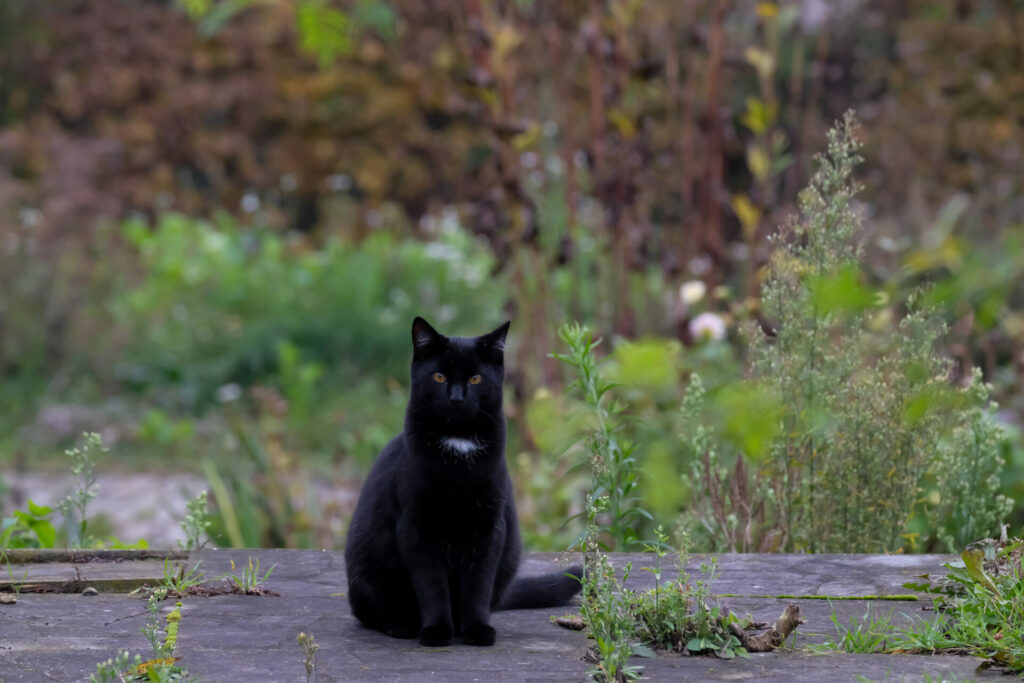Do you know what your cat goes at night, or what it eats when it is out on the tiles? The impact of cats on nature leads some experts to conclude that domestic kitties belong under lock and key.
When a cat is away from home, many turn into ruthless hunters. Nature lovers are worried about the impact of this, and a recent Dutch symposium raised the question of whether we should not consider the cat as a harmful exotic, such as the raccoon or the Japanese knotweed, the plant that overgrows entire roadsides.
The exact impact of domestic cats on our nature is difficult to determine and hardly any research has been done in Belgium. Estimates of the number of prey that domestic cats are responsible for vary from 14 to 34 per year, depending on the study. That would amount to about 30 to 70 million victims for the more than two million Belgian cats. According to an American study, cats in the United States liquidate 1.3 to 4 billion birds and 6.3 to 22 billion mammals annually.
What the cat brings home is just the tip of the iceberg. American researchers who equipped cats with a camera found that they deliver less than a quarter of their prey to the doormat. According to British researchers, it's simple: "Large numbers of cats inevitably kill large numbers of wild animals."
Island predators
Research shows that cats on islands can have a particularly devastating effect. According to the International Union for Conservation of Nature (IUCN), cats can be the main cause of 14% of recent cases where species have become extinct on islands.
On the mainland, the consequences are less well studied. Some more common species may take more losses than others. However, a recent Italian study shows that endangered species are among the victims of domestic cats. "This is proof that free-roaming cats can compromise species conservation," the researchers said.
"Cats can make it extra difficult for species that are already under pressure," says Tim Adriaens (Institute for Nature and Forest Research/INBO), an expert in the impact of alien species on our nature. Adriaens thinks in the first place of vulnerable mammal species such as hazel, acorn and dwarf shrews, and ground-nesting birds such as the partridge, whose young are easily taken by cats. "But even more common species such as blackbirds and song thrushes are not exactly known, insidious loss."
Banning cats from catching wild birds
In a recent statement, the Dutch Bird Protection organisation advocates not allowing cats to catch wild birds. "We want to make people more aware of the true slaughter that cats cause," explains spokesman Marc Scheurkogel, "Ideally, we would like to see owners always keep their animal inside. At least in the breeding season, roughly from April to July, when fledging young are extra vulnerable."
The Flemish Bird Protection Association also agrees. "We call on cat owners to be vigilant for breeding and young birds," says Niels Luyten. "You can also prevent a lot of suffering by keeping your cat indoors at night."
That we would turn our domestic cats into home cats en masse seems to most experts a utopia. According to lawyer Arie Trouwborst from Tilburg University in Denmark, cat owners are legally obliged to keep their pets under lock and key.
"The European bird and habitat directives prohibit the deliberate killing, capture and disturbance of protected animal species," says Trouwborst. "It is not only about deliberately killing animals, but also about actions of which you know or should know what the consequences can be. That's exactly what happens when you open the cat flap. But we turn a blind eye to this en masse, including the government, which does not enforce this. The impact of cats is a big blind spot."
Related News
- Women take most responsibility for caring for pets, study shows
- Pet owners will need a permit to adopt in Wallonia
- Cats can remember names of their friends and owners, study shows
Things are changing. The city council of the German municipality of Waldorf last month announced a "cage obligation" for cats, to protect the rare and ground-nesting crested lark. "Some Icelandic municipalities prohibit the release of cats," says Trouwborst. "And certain regions in Australia have an extinction policy: cats that currently walk outside can spend the rest of their days in freedom, but whoever buys a new cat must keep it inside. I think that's an elegant compromise."
A cat that has to stay indoors all the time, isn't that pathetic? Trouwborst establishes that the cat, as the only pet, enjoys a lot of exuberant freedom. "If it turns out that a cat cannot lead a 'cat-worthy' existence indoors, we may have to ask ourselves whether cats are such suitable pets."

